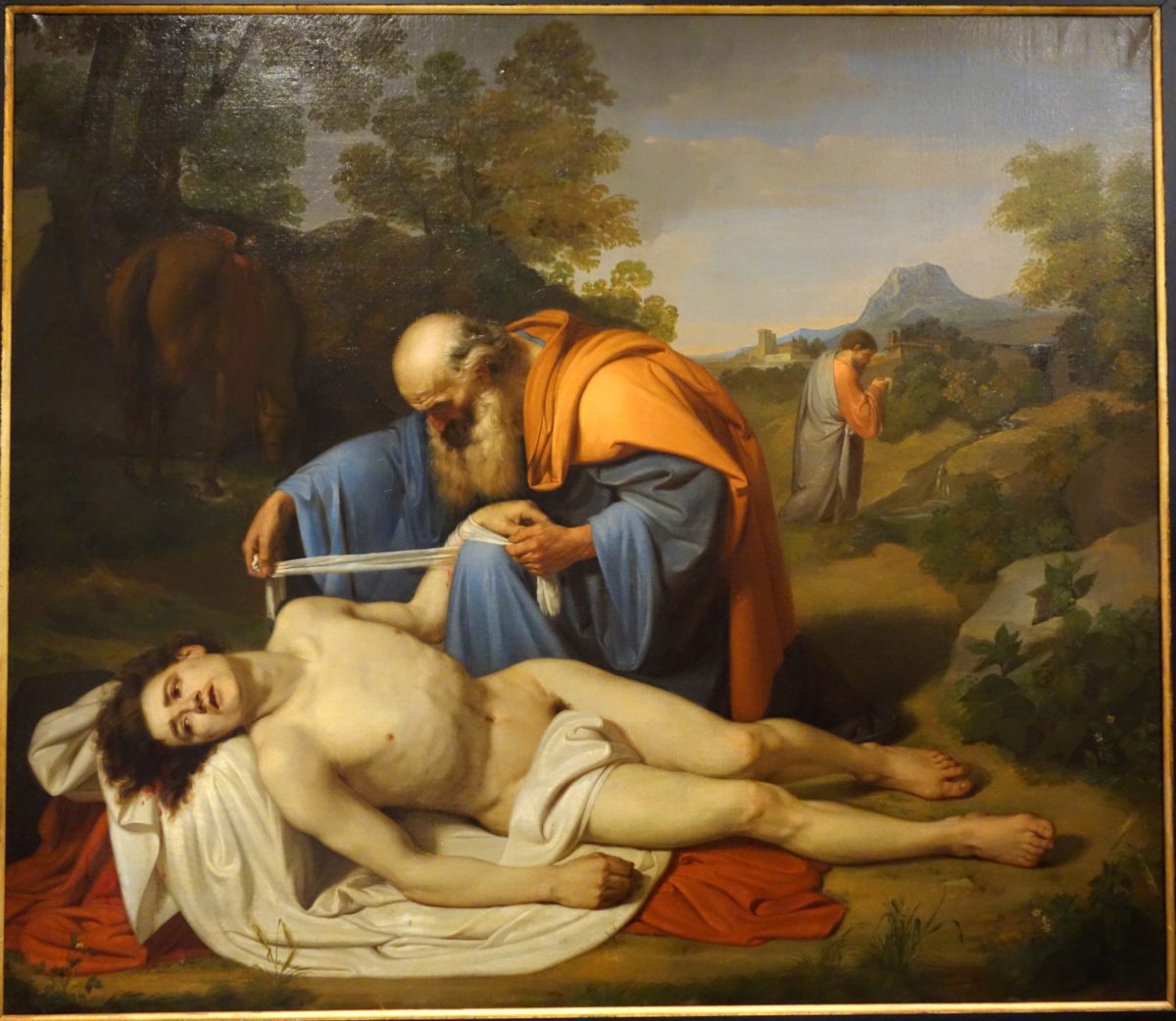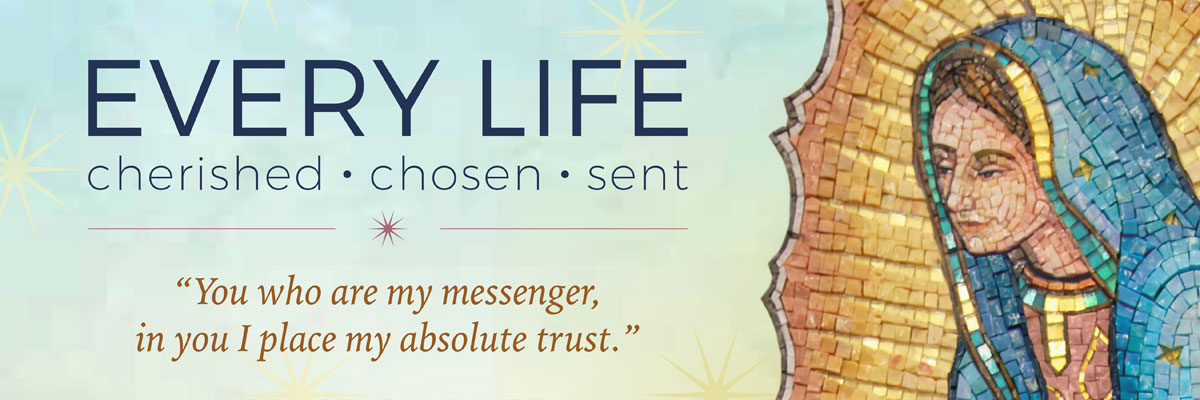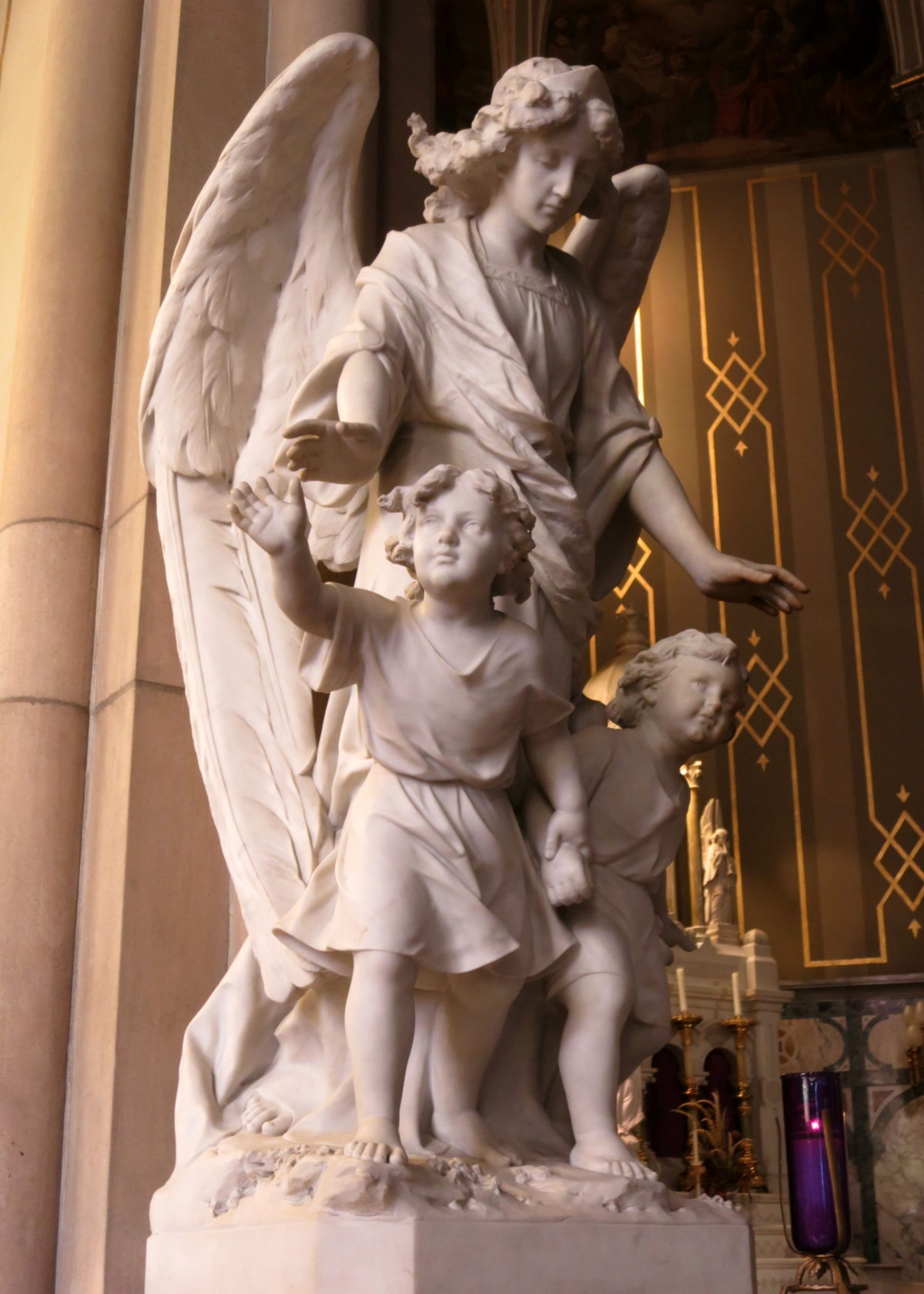Today, I’d like to share a bit more of a sermon than a homily, reflecting more on a specific topic than on the readings themselves. I do this because today is Respect Life Sunday, and I think it’s important to be aware of what the Church teaches on this very important issue. This being an election year ups the ante a bit on Respect Life Sunday, because we need to do our best to vote for leaders who will help us to respect life in all its stages. It’s not an easy choice, nor one we should make without due prayer, study, and reflection. I hope this little sermon can be of some help in that regard, and my column in the bulletin today reiterates much of what I’ll say here.
I would begin this reflection with these beautiful words from today’s second reading: “Whatever is true, whatever is honorable, whatever is just, whatever is pure, whatever is lovely, whatever is gracious, if there is any excellence and if there is anything worthy of praise, think about these things.” We can be so distracted by things that seem good that really aren’t all that good, things that seem important that are really just sweating the small stuff, and God would have us look instead at what is lovely, gracious, excellent and worthy of praise – in short, God would have us reflect on what he has created and know that this is the greatest gift, the most important thing we could be busied about.
The Catechism of the Catholic Church tells us: “The dignity of man rests above all on the fact that he is called to communion with God. This invitation to converse with God is addressed to man as soon as he comes into being. For if man exists, it is because God has created him through love, and through love continues to hold him in existence. He cannot live fully according to truth unless he freely acknowledges that love and entrusts himself to his creator.” (CCC, 27; cf. Gaudium et Spes 19.1) Life is the greatest good we have because it is God who created life, every life, from the tiniest embryo to the elderly person in the final stages of life. We reverence life, respect life, reaffirm life, because human life is the best thing there is on this whole big earth, the most magnificent of all God’s wonderful creation.
The basis for the movement to respect life, of course, is the fifth commandment: You shall not kill (Ex 20:13). The Catechism is very specific: “Scripture specifies the prohibition contained in the fifth commandment: ‘Do not slay the innocent and the righteous.’ The deliberate murder of an innocent person is gravely contrary to the dignity of the human being, to the golden rule, and to the holiness of the Creator. The law forbidding it is universally valid: it obliges each and everyone, always and everywhere.” (CCC 2261) And that would seem simple enough, don’t you think? God said not to kill another human being, and so refraining from doing so reverences his gift of life and obeys his commandment.
But life isn’t that simple. Life is a deeply complex issue involving a right to life, a quality of life, a reverence for life, and sanctity of life. Jesus himself stirs up the waters of complexity with his own take on the commandment. In Matthew’s Gospel, he tells us: “You have heard that it was said to the men of old, ‘You shall not kill: and whoever kills shall be liable to judgment.’ But I say to you that everyone who is angry with his brother shall be liable to judgment.” (Mt 5:21-22)
Our Savior’s instruction on life calls us to make an examination of conscience. We may proclaim ourselves as exemplary witnesses to the sanctity of life because we have never murdered anyone nor participated in an abortion. And those are good starts. But if we let it stop there, then the words of Jesus that I just quoted are our condemnation. The church teaches that true respect for life revolves around faithfulness to the spirit of the fifth commandment. The Catechism tells us, “Every human life, from the moment of conception until death, is sacred because the human person has been willed for its own sake in the image and likeness of the living and holy God.” (CCC 2319)
The issues that present themselves under the heading of respecting life are many. We are called to put aside racism and stereotyping, to reach out to the homeless, to advocate for health care for all people, to put an end – once and for all! – to abortion, capital punishment, war, terrorism and genocide, to recognize that euthanasia is not the same thing as mercy, to promote the strength of family life and the education of all young people, to provide food for those who hunger. We Catholics must accept the totality of the Church’s teaching of respecting life, or we can never hope for a world that is beautiful or grace filled.
We pro-life Catholics are called to go above and beyond what seems comfortable in order to defend life. And so we must all ask ourselves, are there lives that we have not treated as sacred? Have we harbored anger in our hearts against our brothers and sisters? What have we done to fight poverty, hunger and homelessness? Have we insisted that those who govern us treat war as morally repugnant, only to be used in the most severe cases and as a last resort? Have we engaged in stereotypes or harbored thoughts based on racism and prejudice? Have we insisted that legislators ban the production of human fetuses to be used as biological material? Have we been horrified that a nation with our resources still regularly executes its citizens as a way of fighting crime? Have we done everything in our power to be certain that no young woman should ever have to think of abortion as her only choice when she is facing hard times? Have we given adequate care to elder members of our family and our society so that they would not face their final days in loneliness, nor come to an early death for the sake of convenience? Have we avoided scandal so as to prevent others from being led to evil? Have we earnestly petitioned our legislators to make adequate health care available for all people, so that the ability to choose life doesn’t come at such disastrous cost?
Every one of these issues is a life issue, brothers and sisters, and we who would be known to be respecters of life are on for every single one of them, bar none. The Church’s teaching on the right to life is not something that we can approach like we’re in a cafeteria. We must accept and reverence and live the whole of the teaching, or be held liable for every breach of it. If we are not part of the solution, we are part of the problem. And the world is definitely watching: are we who we say we are? Do we really respect life, or do we pick and choose which issues are important to us? On this day of prayer for the sanctity of life, our prayer must perhaps be first for ourselves that we might live the Church’s teaching with absolute integrity in every moment of our lives.
Our God has known us and formed us from our mother’s womb, from that very first moment of conception. Our God will be with us and will sustain us until our dying breath. In life and in death, we belong to the Lord … Every part of our lives belongs to the Lord. Our call is a clear one. We must constantly and consistently bear witness to the sanctity of life at every stage. We must be people who lead the world to a whole new reality, in the presence of the One who has made all things new.




You must be logged in to post a comment.